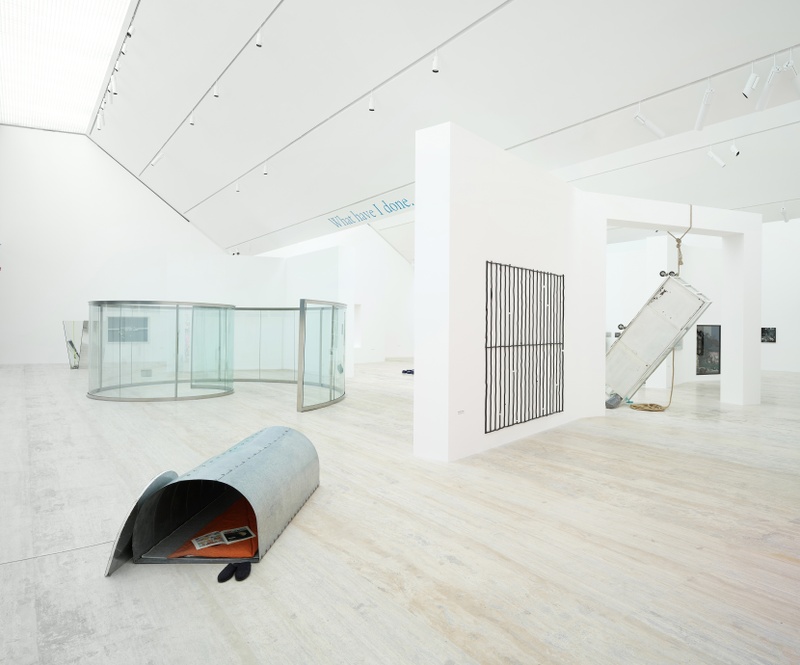In his sculptures and installations, Yngve Holen explores how the advance of technology has had an impact on human beings, particularly on our behavior and understanding of the body. This work is a piece from a CT scanner, which creates tomographic images from computer-processed X-rays, allowing us to see inside biological objects without incisions. In Holen’s work however it is the machine itself that has been sliced. The smooth, polished surface of the scanner’s face panel has been painted to resemble the cream-beige colour of a Berlin taxi, as implied by the work’s title. The sculpture also brings to mind the notion of blackboxing, described by philosopher and anthropologist Bruno Latour as the phenomenon by which “scientific and technical work is made invisible by its own success”, so that “the more science and technology succeed, the more opaque and obscure they become.” Through his practice, Holen considers the proliferation of new technologies and how they shape the development of every industry, from construction and healthcare to surveillance and the arts.
Image: Courtesy the artist; Galerie Neu, Berlin; MODERN ART, London; and Neue Alte Brücke, Frankfurt
Photo: Stefan Korte

